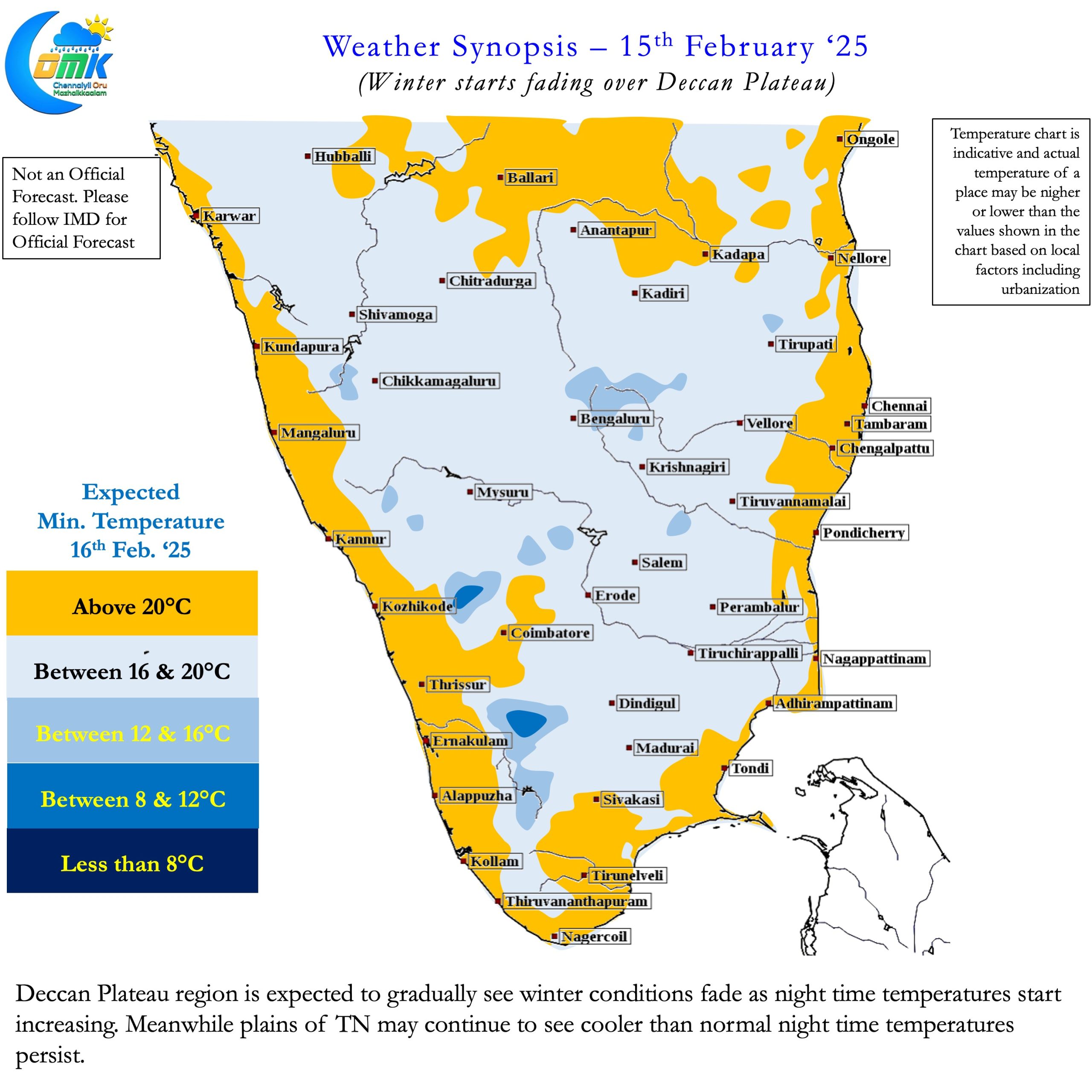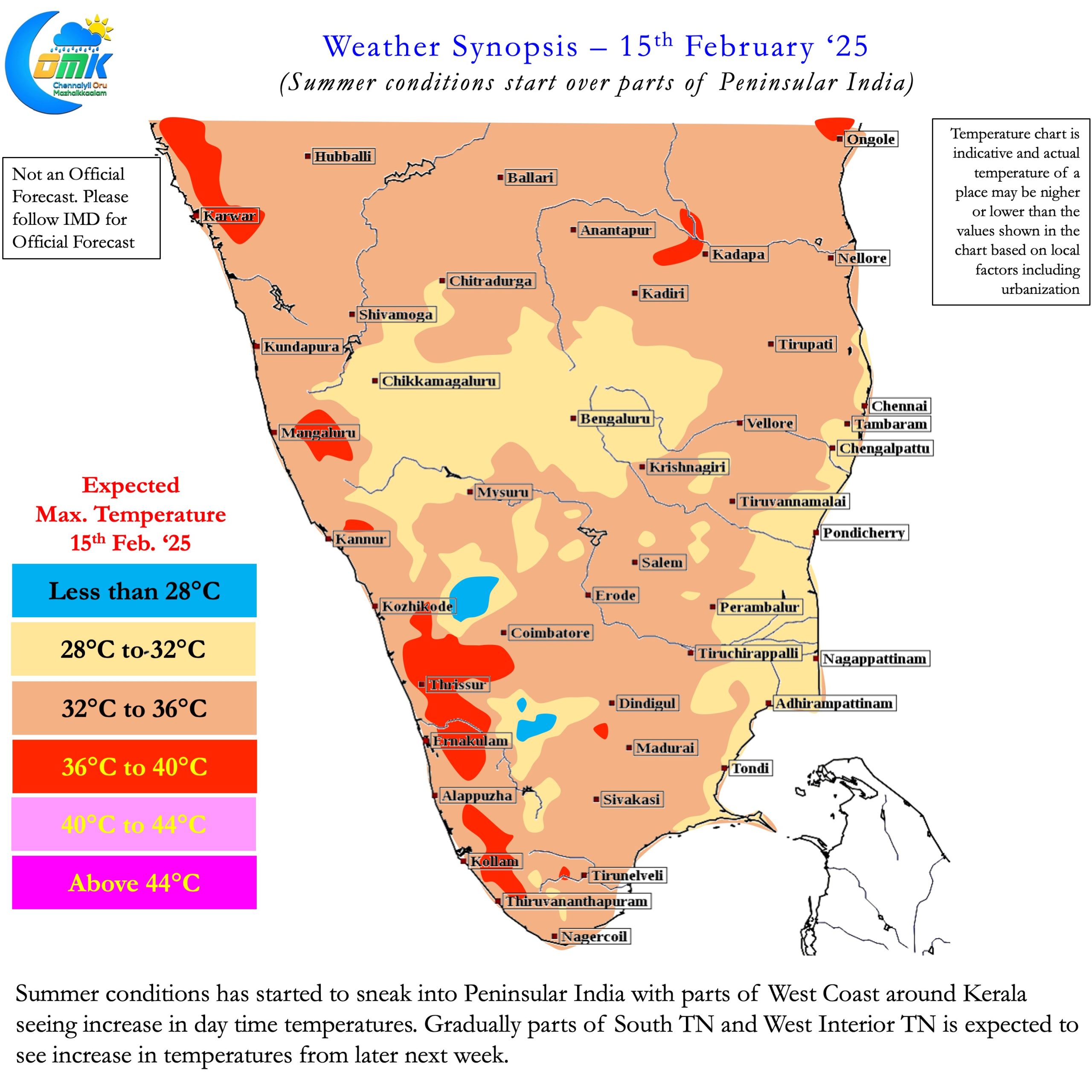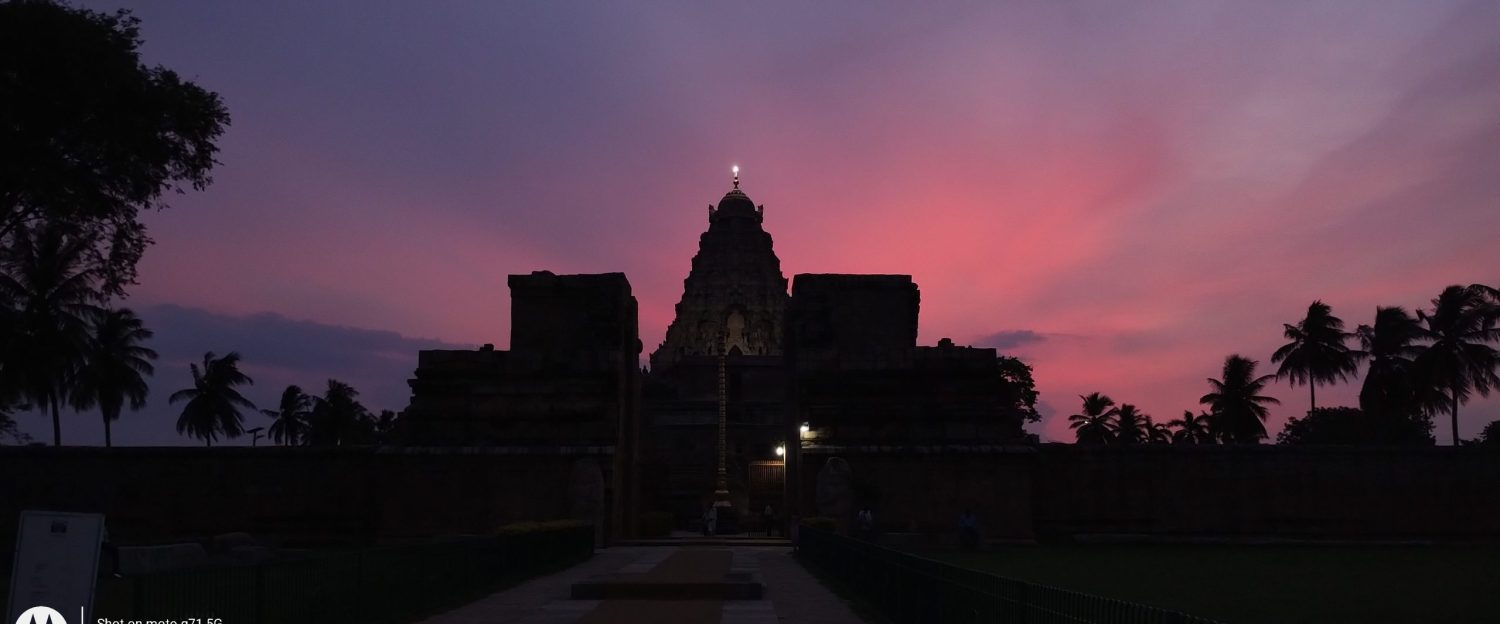As schools kids every one of us would have read how the Earth’s tilted axis causes seasons. As different parts of Earth comes under the rays of Sun areas alternate between Summer and winter. But in addition to this there are factors like wind directions that play a role too. The Indian sub continent sees two wind regimes. Westerly which is responsible for Southwest Monsoon and Easterly which creates Northeast Monsoon. These wind regimes also influence summer conditions by pushing heat from the land.
During the months of May and June when the Westerlies strengthen the coastal areas of Peninsular East coast become the hottest. Similarly during the months of February and March when Easterlies rule the roost it is inverse. It is places along the Peninsular West coast that become the hottest in the region. So it is no surprise to see parts of Kerala become the hottest places in India yesterday. Summer conditions first show up over the Indian sub continent around the Palakkad Gap. The Easterly winds push the afternoon heat from interior Tamil Nadu into the plains of Kerala.




Pretty much at the same time or on some occasions even earlier parts of Deccan Plateau also starts seeing summer conditions. Interior Karnataka and adjoining areas of Rayalaseema region, are also early adapters to summer conditions. As these areas heat up gradually the adjoining areas of Tamil Nadu also starts reflecting it. South TN and parts of West Interior TN become the first set of places to see increase in day time temperatures. Coastal areas like Chennai come in much later helped by the presence of Easterlies until mid of April. As a matter of fact the peak summer conditions more often than not happen around Peninsular Monsoon onset for Chennai.
Weather models indicate day time temperatures are expected to increase over parts of Kerala. Many places in the state particularly about 75 to 100 kms from the coast line may see maximum temperature touch 37 / 38°C regularly. Later next week west interior TN and parts of South TN may also start seeing increase in day time temperatures. But overall seasonal models do indicate summer may not be harsh for Peninsular India.
As far as night time temperatures go it is fair to say winter is coming to an end over the Deccan Plateau. A gradual increase in minimum temperatures are expected over the region from now on. The plains of Tamil Nadu though will continue to see cooler than normal temperatures continue during nights / early mornings for the next few days.

